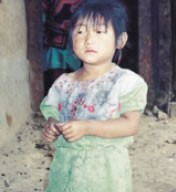Liujia in China

Photo Source:
Copyrighted © 2026
Operation China, Asia Harvest All rights reserved. Used with permission |
Send Joshua Project a map of this people group.
|
| People Name: | Liujia |
| Country: | China |
| 10/40 Window: | Yes |
| Population: | 4,900 |
| World Population: | 4,900 |
| Primary Language: | Chinese, Mandarin |
| Primary Religion: | Ethnic Religions |
| Christian Adherents: | 0.00 % |
| Evangelicals: | 0.00 % |
| Scripture: | Complete Bible |
| Ministry Resources: | Yes |
| Jesus Film: | Yes |
| Audio Recordings: | Yes |
| People Cluster: | Chinese |
| Affinity Bloc: | East Asian Peoples |
| Progress Level: |
|
Introduction / History
At the time of the 1982 census the Liujia, who are also known as the Liujiaren, had not been classified under any of China's 56 official nationalities. In 1985, after further investigation, the Liujia were placed in the Han Chinese nationality. This decision was based on historical records which showed the Liujia were originally Han immigrants who moved to Guizhou. The Liujia, however, after living for centuries alongside minority peoples and absorbing many of their customs and identity, believe they are a minority group and are upset at being called Han.
One of the main reasons for the Liujia's opposition to being identified as Han Chinese results from the persecution and discrimination they have suffered from the Chinese over the centuries. The main bulk of Chinese settlers entered Guizhou between the fifteenth and eighteenth centuries. Before that time, with the exception of isolated cases such as the Liujia, Chuanlan, and Chuanqing peoples, Guizhou was inhabited entirely by tribal peoples. The later Han migrants also viewed the Liujia as a minority group, drove them off the best land into the remote mountains, and attempted to assimilate them by forbidding them to speak their own language or celebrate their festivals.
What Are Their Lives Like?
The Liujia possess their own traditional style of dress, similar to that of their minority neighbors. These days the dress is usually worn only for festivals and other special occasions, but it continues to make a statement that the Liujia do not consider themselves to be Han people. The Liujia have also absorbed other parts of minority culture, including food preparation and eating styles.
What Are Their Beliefs?
Liujia religious life consists of elements of ancestor worship, animism, and Daoism. Every home contains an ancestral altar on which incense and food is placed as an offering to the souls of their deceased relatives.
The Liujia are believed to be an unreached people group with no known Christians in their midst. Catholic mission work dating back 300 years and Protestant mission work which commenced in 1877 have been carried out in various parts of Guizhou Province with mixed results, but the message of eternal life in Jesus Christ has yet to reach the ears of the Liujia people. Chinese Scriptures and gospel recordings in the Guizhou dialect are available.
What Are Their Needs?
Without the guidance of Christ, these people are like sheep without a shepherd. They need the good shepherd in their families and communities.
Prayer Points
Pray for the Lord to thrust out workers.
Pray for the Lord to intervene in their families, calling people to his side.
Pray for their hearts to be drawn to the Lord of lords.
Pray for a church planting movement to thrive in their communities.